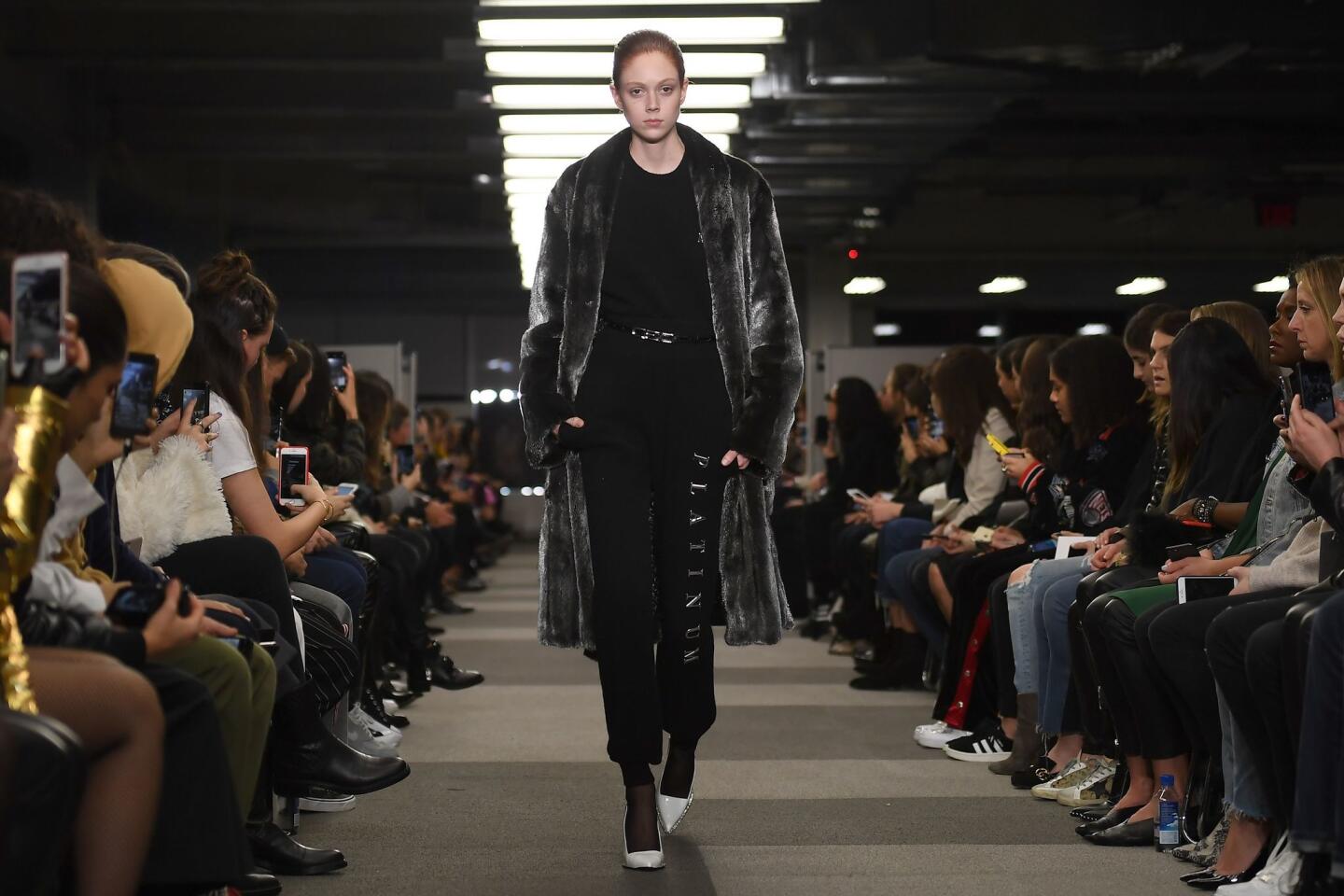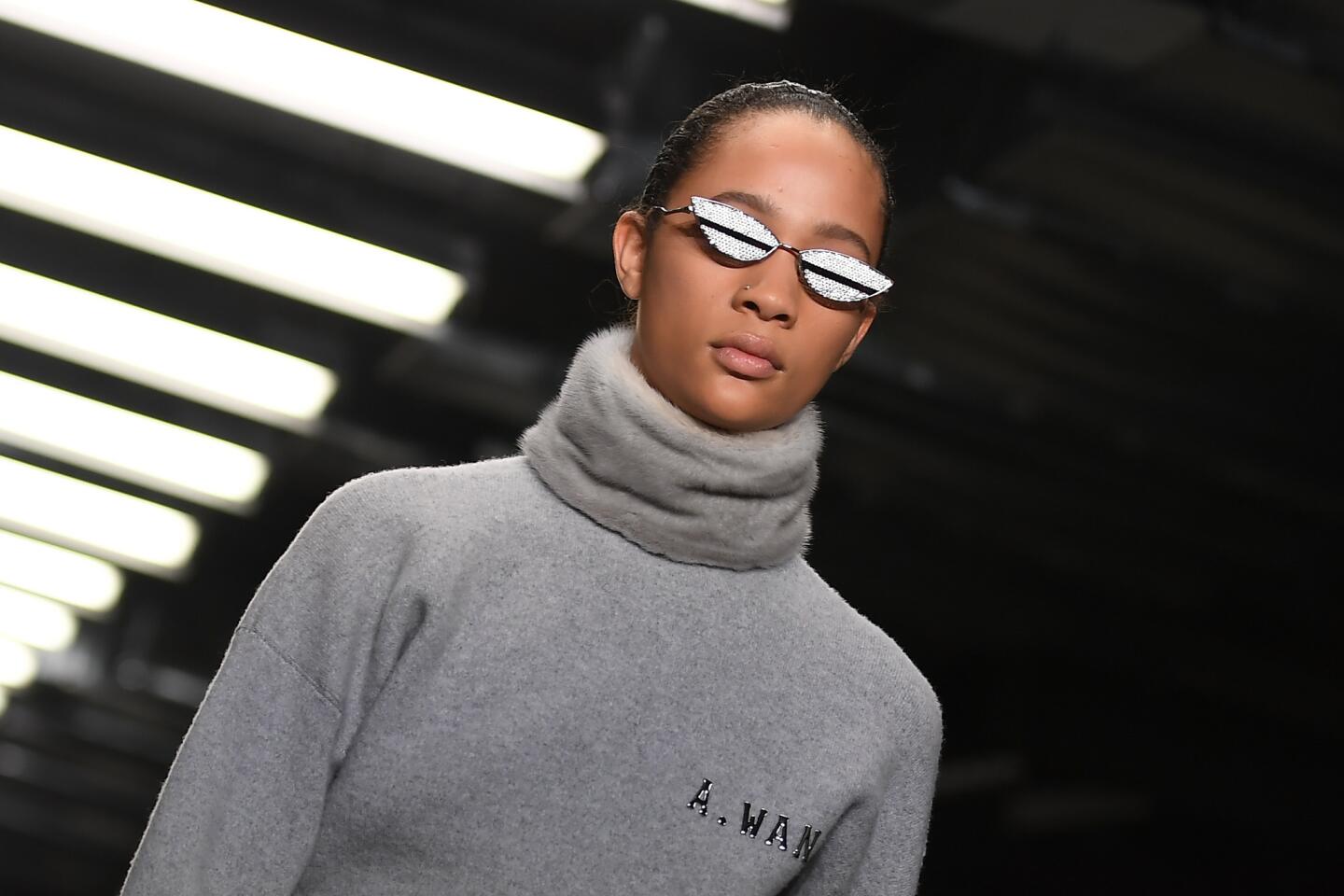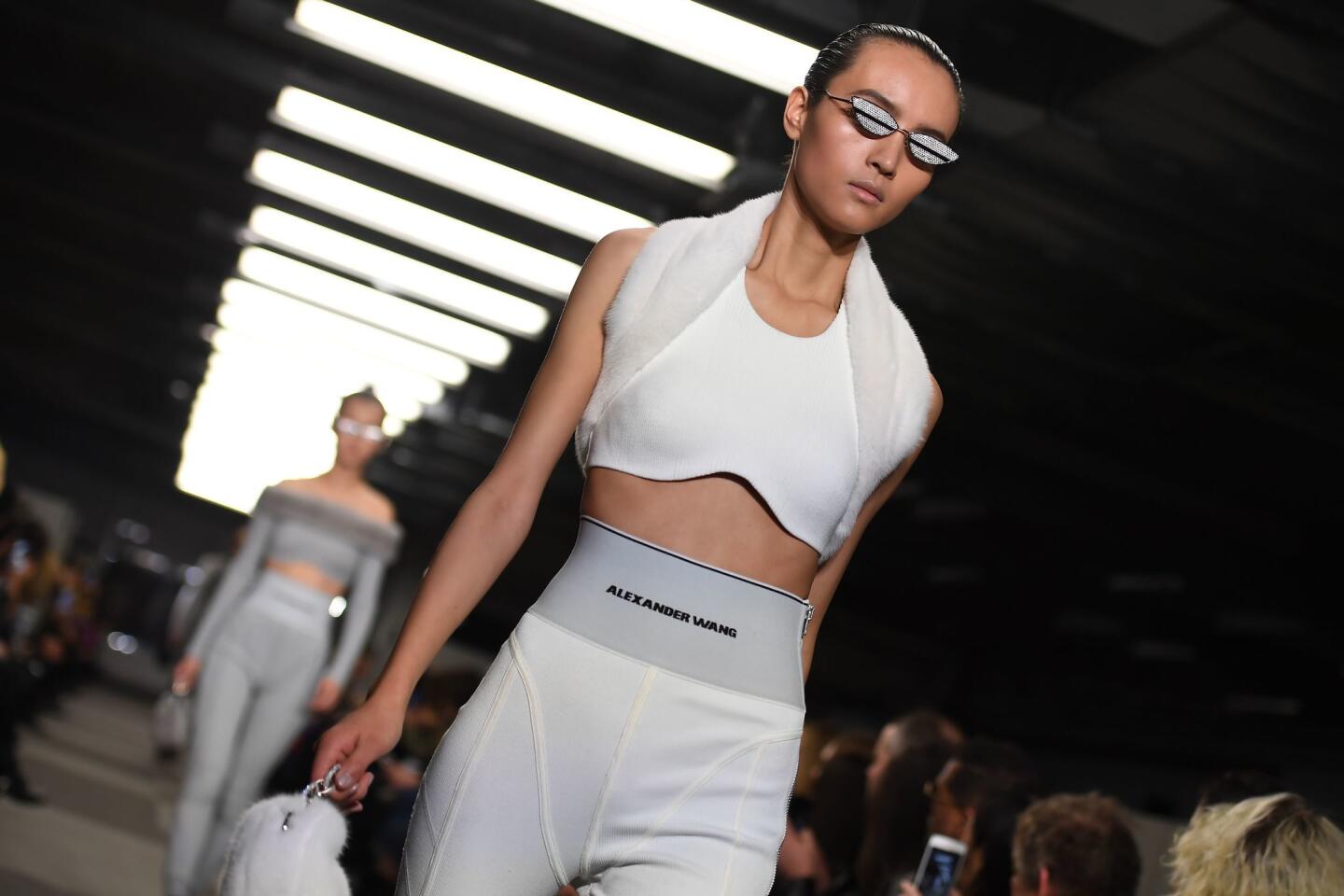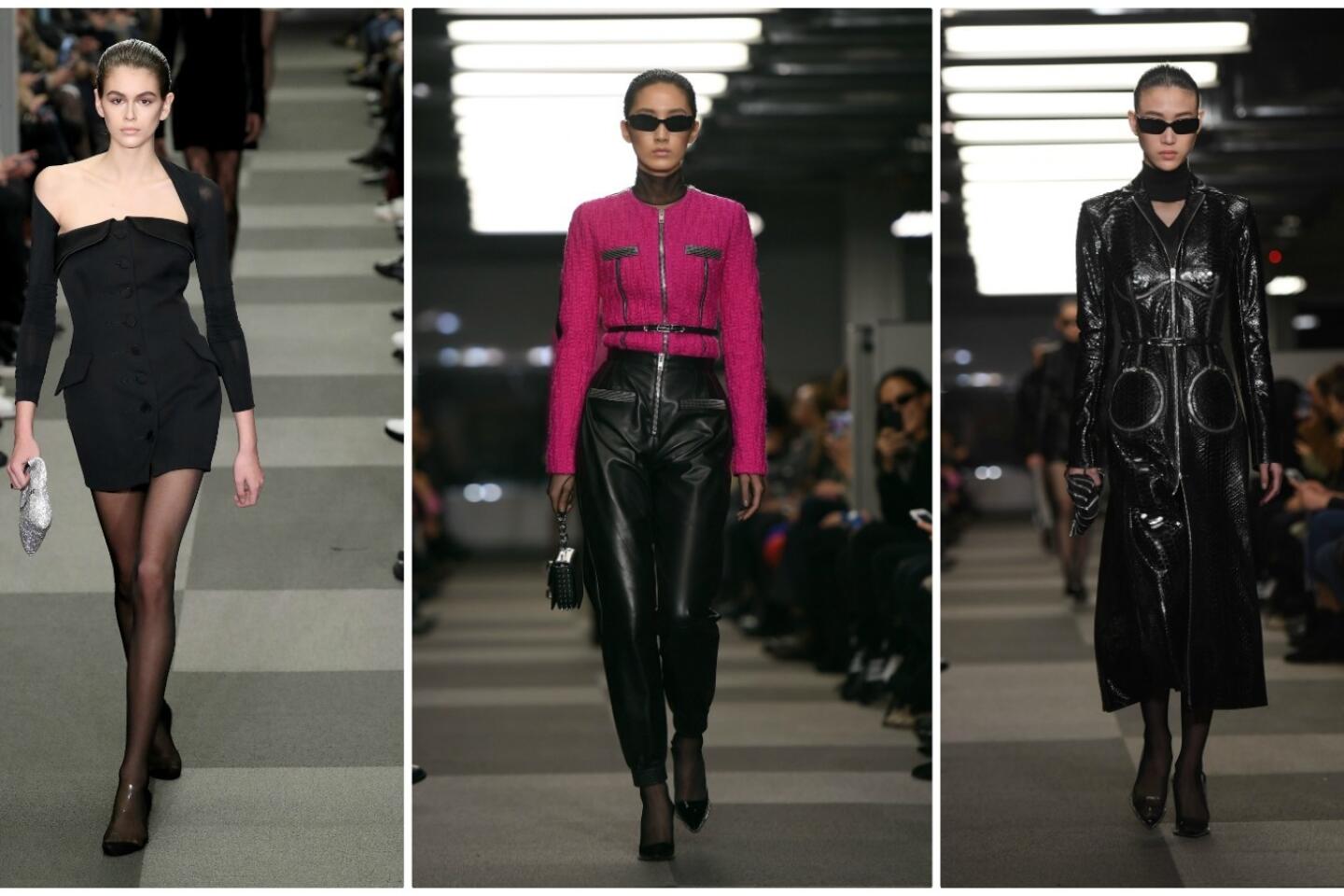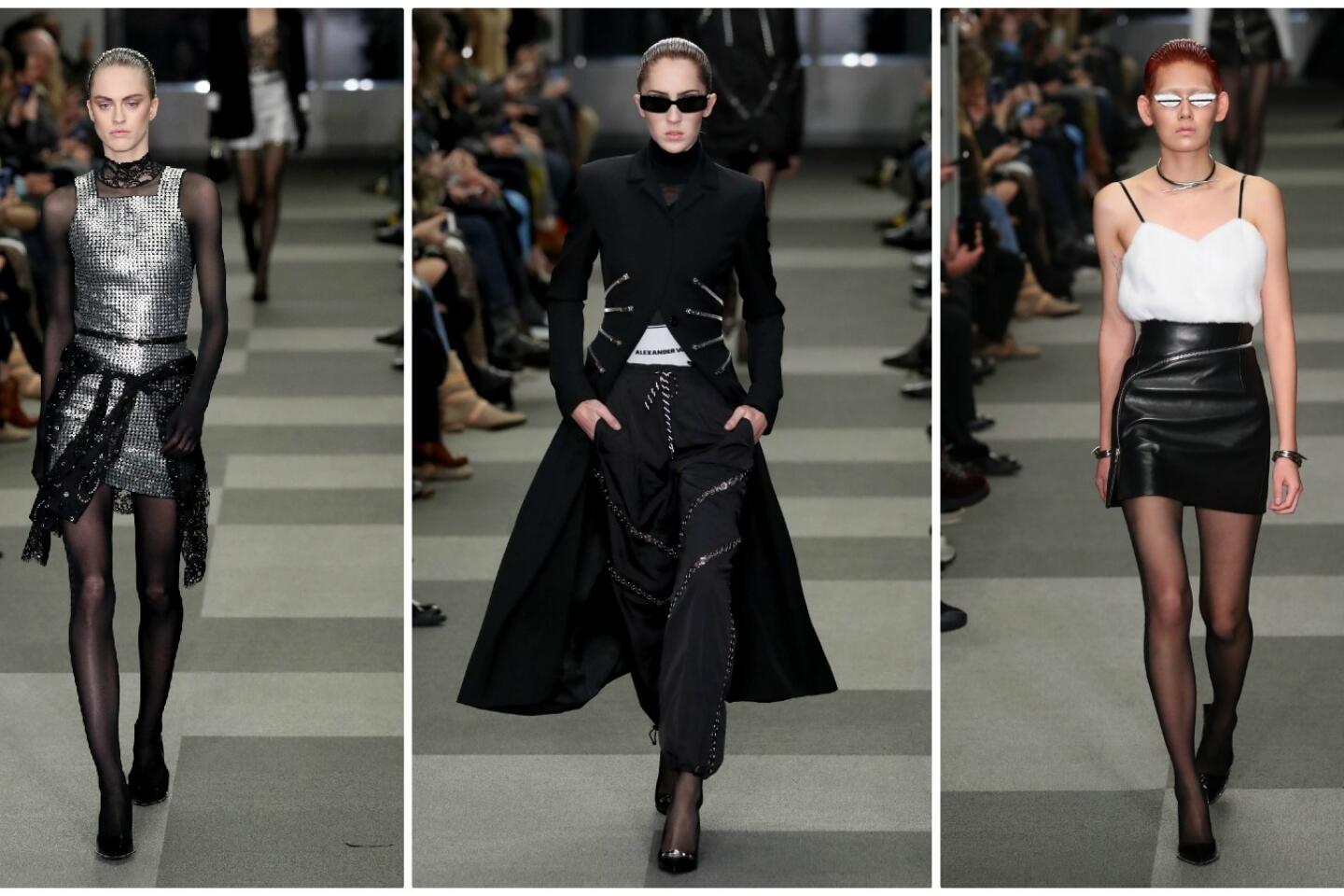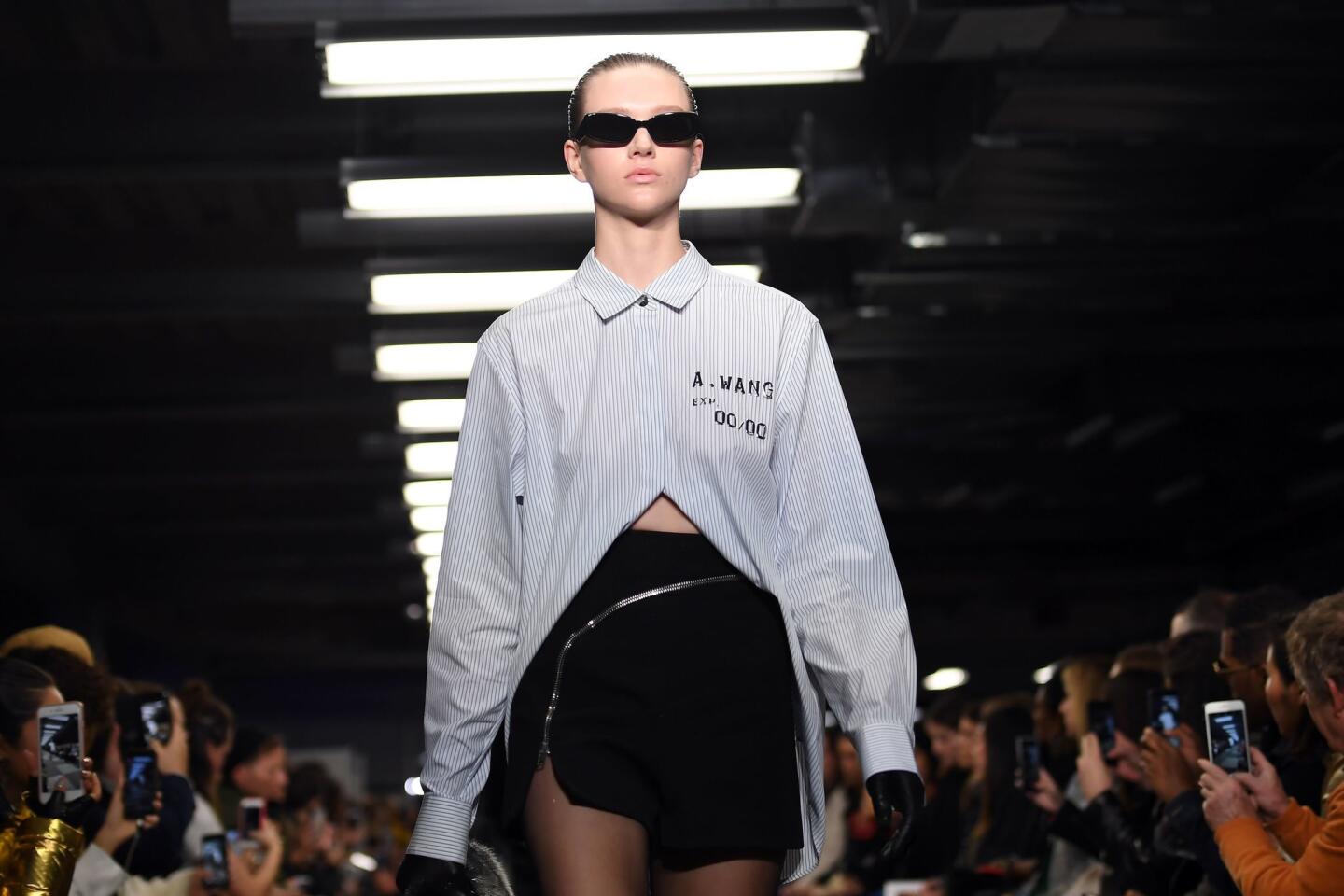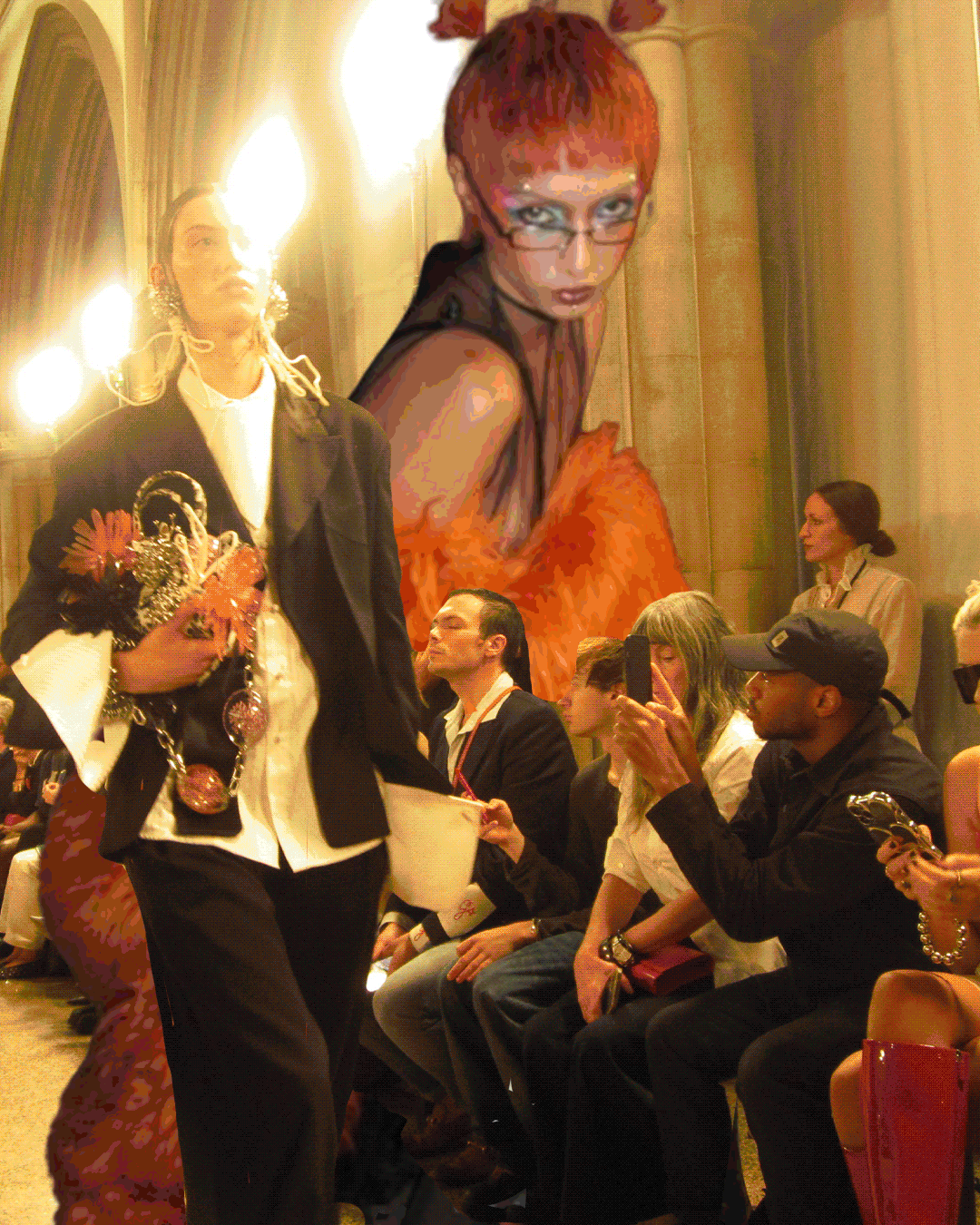For fall/winter 2018, Alexander Wang mines ‘80s-era corporate excess, platinum cards and all
- Share via
Reporting from New York — The 1980s have been a noticeable presence on the runways here all week, but Alexander Wang’s fall and winter 2018 collection on Saturday managed to cleverly riff on the decade of corporate excess in a way that squared it with another of the week’s big takeaways — the power or empowerment of women.
Set in the cavernous 21st-floor office spaces at 4 Times Square formerly occupied by Condé Nast (publishers of Vogue, Vanity Fair and GQ magazines, to name just a few), no detail of high-flying ’80s-era corporate culture was spared, from the imposing AWG (for Alexander Wang Group) corporate logo in the lobby and elevator bays to the cubicle dividers and standard-issue office chairs that demarcated the runway. (In the event guests were unclear where they fit in the corporate hierarchy, each was issued a “cubicle number” instead of a seat assignment and instructed to “report directly to the office upon arrival.”)
As the show started, things turned a bit darker — literally and figuratively — with overhead fluorescent lights flickering off one by one and the soundtrack serving up the unmistakable noise of high heels click-clacking in panic across bare concrete.
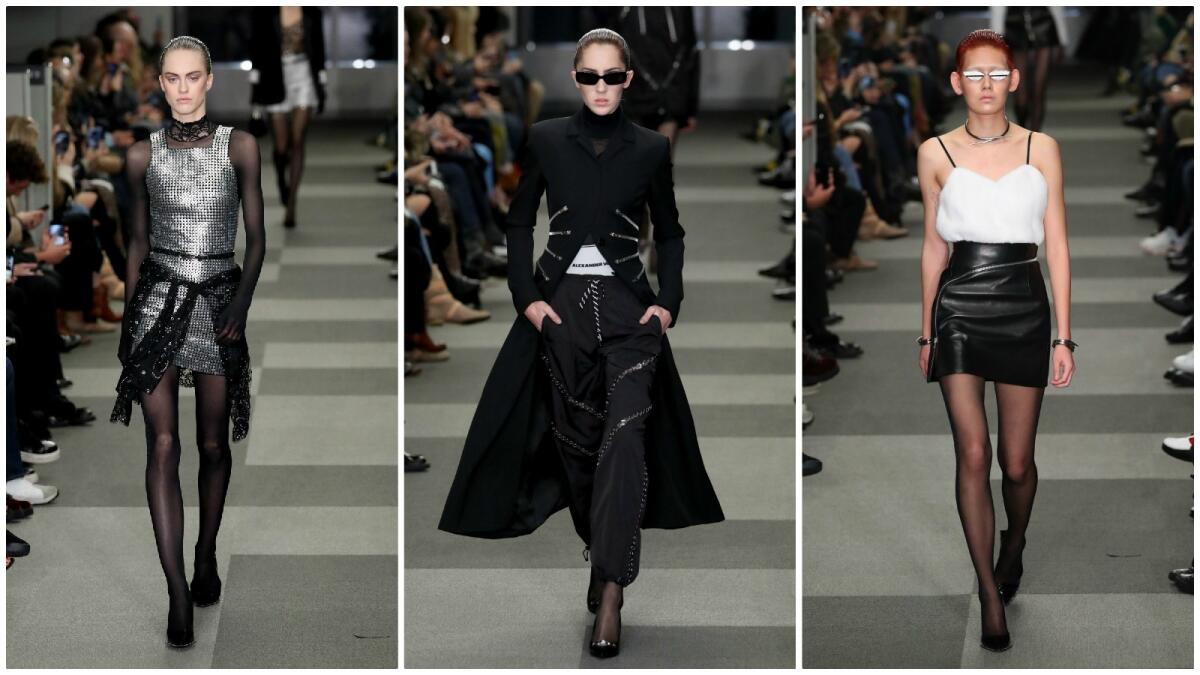
When the lights flickered back on, the collection that followed might appropriately be described as corporate empowerment dressing — part “Terminator” and part “Wall Street” (the first film hit theaters in 1986; the other, a year later for anyone keeping track of the ’80s connections). The show was all fierce clothes for the woman who, instead of climbing the corporate ladder, has decided to use it as a battering ram to shatter the glass ceiling.
Rooted in black, with a few pieces in silvery gray (and even fewer in eye-popping pink), the collection included a strong offering of dresses, skirts and strong-shouldered jackets with a multiplicity of zipper details as well as leggings, roomy dress shirts and the obligatory athleisure pieces (a turtleneck sweatsuit as well as underwear-as-outerwear workout tops).
A stylized version of the acronym CEO (for chief executive officer) appeared in silver on some pieces and as an allover print on others. Appearing on many pieces in the collection were strings of digits in a typeface familiar to anyone who has ever wielded a credit card — some alongside “A. Wang EXP. 00/00.” (One can only assume that true style has no expiration date). A few pieces hammered the point home further by plastering the word “platinum” here and there, a reference to the platinum charge card, a symbol of C-suite entitlement if ever there was one. (American Express, by the way, started issuing platinum cards in 1986, another of the collection’s connection to the decade of decadence.)
Accessorizing the collection were futuristic sunglasses, which actually felt more “The Matrix” than “Terminator,” and silver chrome banana clips that held the models’ severely slicked back hair in place.
In sum, Alexander Wang’s fall/winter looks were a strong collection for strong women. And, thanks to the show’s genius set piece, it might just be the best thing to happen to cubicle culture since “Dilbert.”
And if you’ve read this far, we probably don’t need to tell you in which decade Scott Adams launched that comic strip.
For more musings on all things fashion and style, follow me at @ARTschorn.
